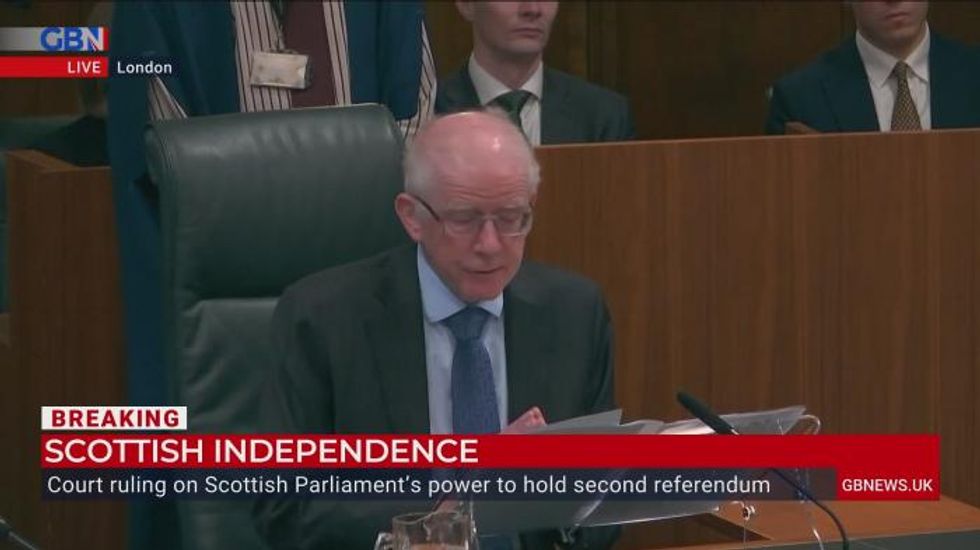Don't Miss
Most Read
Trending on GB News
Scotland’s First Minister has said she is “disappointed” after the UK Supreme Court ruled the Scottish Parliament does not have the power to legislate for another referendum on independence.
UK Supreme Court president Lord Reed announced the unanimous judgment on Wednesday after Scotland’s top law officer referred a prospective Bill to the court.
Lord Reed said: “The Scottish Parliament does not have the power to legislate for a referendum on Scottish independence.”
Jane Barlow
First Minister Nicola Sturgeon said she respects the courts conclusion, but added it “exposes as myth” the UK is a voluntary union.
She tweeted: “While disappointed by it I respect ruling of @UKSupremeCourt – it doesn’t make law, only interprets it.
“A law that doesn’t allow Scotland to choose our own future without Westminster consent exposes as myth any notion of the UK as a voluntary partnership & makes case for Indy.”
She went on to say that “Scottish democracy will not be denied”.
Her tweet continued: “Today’s ruling blocks one route to Scotland’s voice being heard on independence – but in a democracy our voice cannot and will not be silenced.”
Lord Reed said he accepted the Lord Advocate’s argument that it was in the public interest for the court to decide on the matter.
Reading out a summary of the judgment, he firstly said the court was not being asked to express “a view on the political question of whether Scotland should become an independent country”.
He said: “Its task is solely to interpret the relevant provisions of the Scotland Act and decide whether the proposed Bill would relate to reserved matters.”
Lord Reed, who was part of a panel of five justices, said the Lord Advocate had argued the Bill did not relate to reserved matters as the referendum would not automatically bring about the end of the union.
He said the court did not agree with this interpretation, saying a referendum would have “practical” as well as legal effects.
POOL
The Supreme Court president said: “A lawfully held referendum would have important political consequences relating to the union and the United Kingdom Parliament.
“Its outcome would possess the authority, in a constitution and political culture founded upon democracy, of a democratic expression of the view of the Scottish electorate.”
Lord Reed also addressed a written submission from the SNP, which was permitted to intervene in the case.
The party had stressed the need to consider national self-determination in its legal argument for why the court should rule that the Bill could go ahead.
However Lord Reed said the court did not accept this argument, saying previous international rulings on self-determination had related to oppressed people or colonies.
Referring to a Canadian Supreme Court decision, he said: “The court found that Quebec did not meet the threshold of a colonial people or an oppressed people, nor could it be suggested that Quebecers were denied meaningful access to government to pursue their political, economic, cultural and social development.
“The same is true of Scotland and the people of Scotland.”













